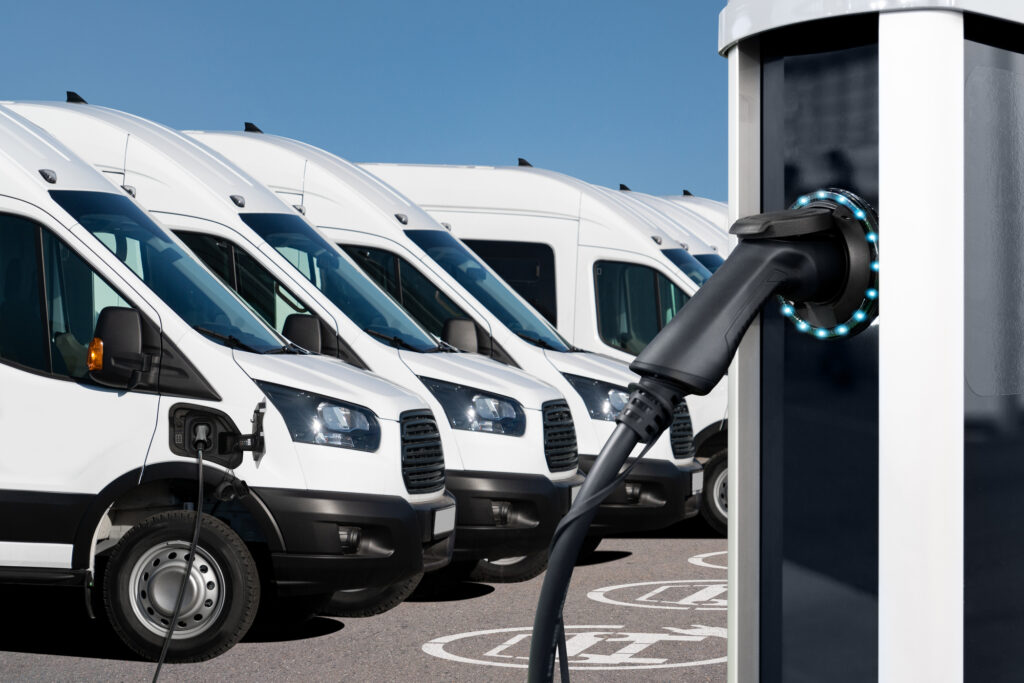Reducing the amount of money spent on fuel for your vehicles is important for saving money and helping the environment. Fleet businesses need to find smart ways to reduce their fuel costs.
This article will give you practical tips and clever strategies to spend less on fuel without hurting your operations. Whether it’s using new technologies or driving smarter, you’ll learn how to save a lot of money. Continue reading to make your vehicle operations more efficient and bring in a new era of affordable and eco-friendly transportation.

Assessing Your Current Fuel Efficiency
Tracking fuel consumption is crucial for effective fleet management. It provides a clear understanding of how much fuel your vehicles use, enabling informed decisions to optimize efficiency and reduce costs.
To calculate and analyze fuel efficiency, consider key metrics. Miles per gallon (MPG) measures how far your vehicle can travel on a gallon of fuel. Gallons per mile assesses the amount of fuel needed for each mile traveled, offering insights into efficiency at a granular level. Total fuel expenses provide an overall view of the financial impact, helping you manage and control costs systematically. Understanding these metrics empowers you to implement strategies that enhance your fleet’s fuel efficiency and economic sustainability.
Identifying Fuel-Wasting Practices
Common factors contributing to high fuel consumption include:
- Excessive idling, where vehicles run without moving.
- Speeding, which reduces fuel efficiency.
- Poor route planning, leads to longer travel distances.
- Vehicle maintenance issues, such as poorly tuned engines or under-inflated tires, affect fuel efficiency.
These fuel-wasting practices have a significant financial impact. Excessive idling and speeding increase fuel consumption, directly translating to higher operational costs. Poor route planning adds unnecessary mileage, contributing to extra fuel expenses. Neglecting vehicle maintenance not only reduces efficiency but also results in increased fuel consumption, amplifying the overall financial burden on fleet operations.
Implementing Driver Training
Educating drivers on fuel-efficient driving techniques is crucial for reducing fuel costs and promoting environmentally friendly practices. Well-trained drivers contribute significantly to overall fleet efficiency and financial savings. In driver training programs, emphasize proper acceleration and braking techniques. Smooth driving reduces fuel consumption by avoiding unnecessary energy waste. Focus on speed management to optimize fuel efficiency. Maintaining consistent speeds within recommended limits prevents excessive fuel usage associated with high speeds and sudden accelerations. Train drivers on regular vehicle maintenance checks. Addressing issues promptly, such as tuning engines and maintaining proper tire pressure, ensures optimal fuel efficiency.
Implement monitoring systems and incentives to promote fuel-efficient driving. Regularly assess driver performance, and reward practices that contribute to lower fuel consumption, fostering a culture of responsible and cost-effective driving within your fleet.
Investing in Fuel-Efficient Vehicles
Evaluating the benefits of newer, more fuel-efficient vehicles is essential for long-term savings. These vehicles often come equipped with advanced technologies and improved fuel economy, reducing overall operational costs and environmental impact. When considering alternative fuel options such as electric or hybrid vehicles, assess their suitability for your fleet’s needs. Factors like charging infrastructure, driving range, and environmental benefits play a crucial role in making informed decisions about adopting alternative fuels. Balancing upfront costs with long-term fuel savings is a key consideration in the investment process. While fuel-efficient vehicles may have higher initial expenses, the reduced fuel consumption over time can lead to substantial financial benefits. Evaluate the total cost of ownership to make strategic decisions that align with both economic and environmental goals.

Route Optimization
Utilizing GPS and route planning software is crucial for efficient fleet management. These tools enable real-time tracking and optimization, ensuring that vehicles follow the most time and fuel-efficient routes. Minimizing fuel consumption through optimized routes involves strategic planning. Avoiding traffic congestion helps vehicles maintain a steady flow, reducing fuel wasted during idle times. Reducing unnecessary stops minimizes fuel consumption associated with frequent acceleration and deceleration. Utilizing fuel-efficient roads, which may include smoother terrains or routes with less elevation change, contributes to overall fuel savings. Implementing these strategies ensures that your fleet operates with maximum efficiency and cost-effectiveness.
Regular Vehicle Maintenance
Preventive maintenance plays a crucial role in fuel efficiency by addressing potential issues before they escalate. Regular checks and tune-ups ensure that vehicles operate at peak performance, optimizing fuel consumption. Creating a maintenance schedule is essential for proactive fleet management. This structured approach helps in timely inspections, repairs, and replacements, preventing unexpected breakdowns and ensuring continuous fuel efficiency. Tire maintenance and proper inflation are key contributors to fuel efficiency. Regularly checking and maintaining optimal tire pressure reduces rolling resistance, enhancing fuel economy. Incorporating tire care into your maintenance routine is a simple yet effective way to improve overall fleet efficiency and reduce fuel costs.
Monitoring and Analyzing Progress
Preventive maintenance plays a crucial role in fuel efficiency by addressing potential issues before they escalate. Regular checks and tune-ups ensure that vehicles operate at peak performance, optimizing fuel consumption. Creating a maintenance schedule is essential for proactive fleet management. This structured approach helps in timely inspections, repairs, and replacements, preventing unexpected breakdowns and ensuring continuous fuel efficiency. Tire maintenance and proper inflation are key contributors to fuel efficiency. Regularly checking and maintaining optimal tire pressure reduces rolling resistance, enhancing fuel economy. Incorporating tire care into your maintenance routine is a simple yet effective way to improve overall fleet efficiency and reduce fuel costs.
Optimizing Your Fleet: From Strategies to Solutions with Gentrifi's Proactive Approach
Reducing fleet fuel costs involves tracking consumption, identifying wasteful practices, implementing driver training, investing in fuel-efficient vehicles, optimizing routes, and maintaining vehicles regularly. Businesses are encouraged to take proactive steps towards fuel efficiency to enhance their operational and environmental sustainability. Ready to optimize your fleet’s fuel consumption? Take the next step with Gentrifi and explore the right tools to enhance efficiency, reduce costs, and drive your business toward a sustainable and successful future.







